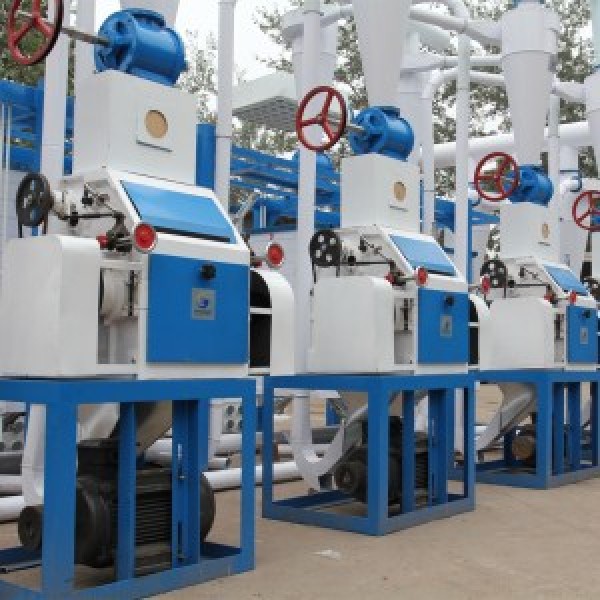UTEBO, SPAIN — Simeza has planned a series of innovative investments to comply with market requirements in the steel silo industry.
The steel silo market is always moving to higher technical specification, bigger dimensions, more reliable performance, shorter delivery time and the highest degree of product flexibility. Rice Mill Plant

Simeza’s planned activities include a new silo design. The roof of the silos was completely redesigned in the main component to prevent any welding operation, allow only bolted assembly, limit the tolerance, increase the loading capacity and allow for any potential finishing.
The range of alternative solutions was extended and now includes the std assembly, the double skin insulated assembly, the fumigation assembly, the color customized shape and the fully stainless-steel bolting.
A new static was worked out according to the new design of the roof, by 3D FEM method for all different snow and wind loads, and now a wide data base is available to react in real time to each individual inquiry.
The size and the layout of the supporting beams of the roof was optimized to be adequate for all different snow and wind loads and to allow easy packing, transport, and assembly.
A new concept of static of the silos under seismic loads was worked out to comply with the significant increase of the seismic coefficient required in many countries.
Simeza has designed several accessories, which were previously required only in special cases, to be manufactured by automatic lines inside the factory.
These include various alternative aeration systems; alternative structural and architectural solutions for hopper silos; alternative solutions for grain ladders; bigger dimension/capacity hopper silos; and alternative solutions for conveyor bridges and stairs.
To implement the above-mentioned strategy, Simeza invested in its manufacturing lines. The profiling line for corrugated steel and vertical stiffeners was upgraded in terms of speed, thickness and tensile of the steel with fully automatic operation and control of the dimension of each item.
A new continuous decoiling and cutting line was installed allowing Simeza to purchase all coil steel with the same zinc finishing and quality for all components.
Other upgrades included installation of a fully automatic punching and cutting line for bended components and roof panels that is integrated with a robotized bending line.
The factory can now manufacture up to 1,500 tonnes of steel silo components per month.
The factory size was essentially doubled with the integration of three adjacent sheds. The rehabilitation and extension of the office is in progress.
To comply with potential longer storage time of the supplied goods prior to installation, and to prevent the risk of potential damage of the finishing, the packing method now uses thin steel sheets for each individual pallet.
For easier loading of containers, the factory is equipped with two hydraulic platforms, and for quick loading of trucks the factory has two independent shipping halls. The company can simultaneously load two trucks and two containers.
Simeza has invested money and efforts in improving the ERP managing system. The new system is already in operation for the sales, administration, and technical department.
Simeza, based in Utebo, Spain, has manufactured storage silos for cereals, flours and other industrial products for over 40 years. The company was purchased in 2015 by Germany-based Petkus Engineering and rebranded in 2021 as CESCO Group.
DUNAFÖFOLDVÁR, HUNGARY — Pannonia Bio sees great potential in the versatility, resilience and sustainability of barley, convincing the Hungarian company to add to its sprawling biorefinery plant with what it describes as “the world’s first high-capacity production plant for barley protein concentrates.”
Located on more than 40 hectares along the Danube River near the town of Dunaföfoldvár in central Hungary, the plant has the capacity to process 800 tonnes of barley per 24 hours and is designed so that production capacity can be doubled in the coming years.

Semolina Processing Machine Pannonia Bio hired Uzwil, Switzerland-based Bühler to be its primary equipment supplier. Equipment installed in the plant includes Bühler’s LAAB grain cleaner, MTRC separator, MTSD destoner, BSPB polisher, MDDZ Diorit roller mills, MPAK Sirius sifters, DFZC hammermill, AHHD pellet mill and MSDH and MSDM scales.